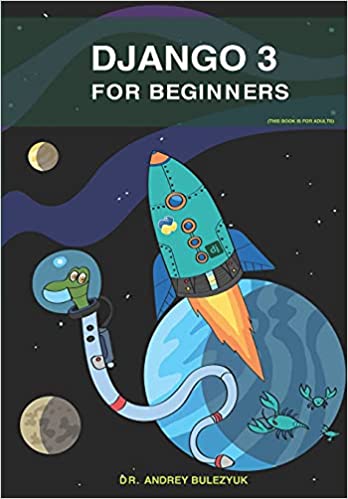- Collaborative Innovation: How Google and OpenAI are Redefining the AI Landscape
- Democratizing AI: The Impact of Google and OpenAI’s Partnership on Accessibility and Inclusivity
- Breaking Down Moats: How Google and OpenAI’s Collaboration Encourages Interoperability and Open Standards
- Future Prospects: The Potential Long-term Benefits of Google and OpenAI’s United Efforts
Collaborative Innovation: How Google and OpenAI are Redefining the AI Landscape
As two of the most influential players in the field of artificial intelligence, Google and OpenAI have long been at the forefront of cutting-edge research and development. By joining forces, these tech giants are poised to redefine the AI landscape, pushing the boundaries of what is possible and accelerating the pace of innovation. This collaboration is expected to result in groundbreaking advancements in machine learning, natural language processing, and computer vision, among other areas.
One of the key aspects of this partnership is the sharing of resources and expertise. Google’s vast computing infrastructure and wealth of data, combined with OpenAI’s research prowess and commitment to open-source principles, create a powerful synergy that is likely to yield significant breakthroughs. This collaborative approach not only benefits the two companies involved but also the broader AI community, as the fruits of their labor are made available for others to build upon.
Another important facet of this collaboration is the focus on addressing some of the most pressing challenges in AI, such as ensuring the safety and ethical use of these technologies. By working together, Google and OpenAI can pool their knowledge and resources to tackle these issues head-on, fostering a more responsible and sustainable AI ecosystem. This is particularly crucial as AI becomes increasingly integrated into our daily lives, with far-reaching implications for privacy, security, and social equity.
Beyond the immediate benefits of their partnership, Google and OpenAI’s collaboration also serves as a model for how organizations can work together to drive progress in the field of AI. By breaking down the barriers that often exist between competing entities, this alliance demonstrates the potential for greater cooperation and knowledge-sharing, ultimately leading to more rapid and widespread advancements in the technology.
In conclusion, the collaboration between Google and OpenAI represents a significant milestone in the evolution of artificial intelligence. By uniting their forces and breaking down barriers, these two industry leaders are poised to reshape the AI landscape, ushering in a new era of innovation, accessibility, and responsible development. As we continue to witness the transformative potential of AI, the importance of such collaborative efforts cannot be overstated.
Democratizing AI: The Impact of Google and OpenAI’s Partnership on Accessibility and Inclusivity
One of the most significant outcomes of the partnership between Google and OpenAI is the potential to democratize access to artificial intelligence technologies. By working together, these organizations aim to make AI more accessible and inclusive, ensuring that its benefits are felt by a wider range of users and industries. This is particularly important as AI continues to transform various sectors, from healthcare and education to finance and transportation.
A key aspect of democratizing AI is the development of open-source tools and platforms that enable users to harness the power of AI without the need for extensive technical expertise. For example, Google’s TensorFlow and OpenAI’s Gym are both open-source frameworks that allow developers to build and train machine learning models with relative ease. By collaborating on such projects, Google and OpenAI can further streamline the process of AI development, making it more accessible to a broader audience.
Another important element of this democratization effort is the focus on addressing the digital divide and ensuring that AI technologies are available to users in underserved communities. This can be achieved through initiatives such as Google’s AI for Social Good program, which aims to apply AI to address societal challenges, and OpenAI’s commitment to ensuring that AI benefits all of humanity. By working together, these organizations can amplify their impact and reach a wider range of users who stand to benefit from AI advancements.
Education and training also play a crucial role in democratizing AI, as they help to equip individuals with the skills needed to participate in the AI-driven economy. Both Google and OpenAI have demonstrated a commitment to fostering AI education, with initiatives such as Google’s AI Residency Program and OpenAI’s research collaborations with academic institutions. By joining forces, these organizations can further expand their educational efforts, helping to create a more diverse and inclusive AI workforce.
In summary, the partnership between Google and OpenAI has the potential to significantly democratize access to AI technologies, making them more accessible and inclusive for users across the globe. By focusing on open-source development, addressing the digital divide, and fostering education and training, these organizations can help to ensure that the benefits of AI are felt by all, rather than being concentrated among a select few. This democratization effort is essential for realizing the full potential of AI and driving sustainable, equitable growth in the technology.
Breaking Down Moats: How Google and OpenAI’s Collaboration Encourages Interoperability and Open Standards
The collaboration between Google and OpenAI represents a significant shift in the AI landscape, as it emphasizes the importance of interoperability and open standards. By breaking down the „moats“ that often exist between competing organizations, this partnership fosters a more collaborative and transparent environment, which is essential for driving innovation and ensuring the responsible development of AI technologies.
Interoperability is a key aspect of this collaboration, as it enables different AI systems and platforms to work together seamlessly, facilitating the exchange of data and the integration of various tools and services. This is particularly important in the context of AI, as it allows researchers and developers to build upon each other’s work, accelerating the pace of innovation and reducing the duplication of efforts. By working together, Google and OpenAI can help to establish common standards and protocols that promote interoperability across the AI ecosystem.
Open standards are another crucial component of this partnership, as they ensure that AI technologies are developed in a transparent and accessible manner. This is in line with OpenAI’s commitment to open-source principles, which prioritize the sharing of knowledge and resources for the benefit of the broader community. By collaborating with Google, OpenAI can further advance its mission of promoting open standards, making it easier for others to build upon and contribute to the development of AI technologies.
Moreover, the emphasis on interoperability and open standards can also help to address some of the ethical and societal concerns associated with AI, such as the concentration of power and the potential for biased algorithms. By fostering a more open and collaborative environment, Google and OpenAI can encourage greater scrutiny and accountability, ensuring that AI technologies are developed in a responsible and transparent manner.
In conclusion, the collaboration between Google and OpenAI has the potential to break down the barriers that often exist in the AI landscape, promoting greater interoperability and open standards. This is essential for driving innovation, ensuring the responsible development of AI technologies, and fostering a more inclusive and equitable AI ecosystem. As AI continues to transform various aspects of our lives, the importance of such collaborative efforts cannot be overstated.
Future Prospects: The Potential Long-term Benefits of Google and OpenAI’s United Efforts
The partnership between Google and OpenAI is not only expected to yield immediate advancements in AI technology but also holds the potential for significant long-term benefits. By combining their resources, expertise, and commitment to responsible AI development, these industry leaders are laying the groundwork for a more innovative, inclusive, and sustainable AI ecosystem in the future.
One of the most promising long-term prospects of this collaboration is the acceleration of AI research and development. As Google and OpenAI work together on cutting-edge projects, they are likely to push the boundaries of what is possible in areas such as machine learning, natural language processing, and computer vision. This, in turn, can lead to the development of new AI applications and services that have the potential to transform various industries and improve the quality of life for people around the world.
Another potential long-term benefit of this partnership is the establishment of best practices and guidelines for responsible AI development. As AI technologies become increasingly integrated into our daily lives, it is crucial to ensure that they are developed and deployed in an ethical and transparent manner. By working together, Google and OpenAI can help to set the standards for responsible AI development, fostering a more sustainable and accountable AI ecosystem.
Furthermore, the collaboration between Google and OpenAI can also contribute to the development of a more diverse and inclusive AI workforce. By promoting education and training initiatives, these organizations can help to equip individuals from various backgrounds with the skills needed to participate in the AI-driven economy. This, in turn, can lead to the development of AI technologies that are more representative of and responsive to the needs of diverse user groups.
In summary, the partnership between Google and OpenAI holds the potential for significant long-term benefits, both in terms of technological advancements and the broader AI ecosystem. By working together, these industry leaders are paving the way for a more innovative, inclusive, and responsible future for AI. As we continue to witness the transformative potential of AI, the importance of such collaborative efforts in shaping the trajectory of this technology cannot be overstated.








0 Comments